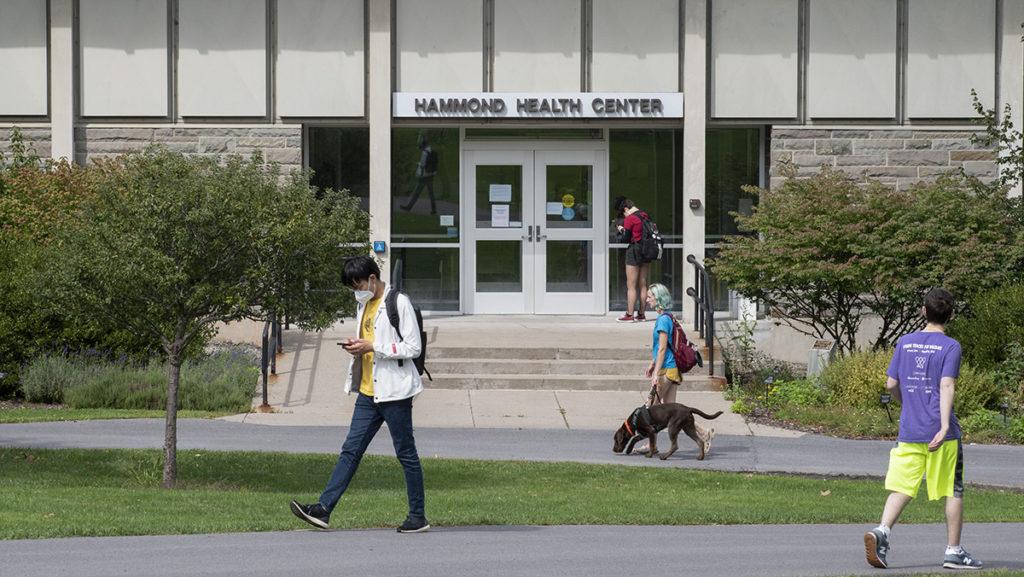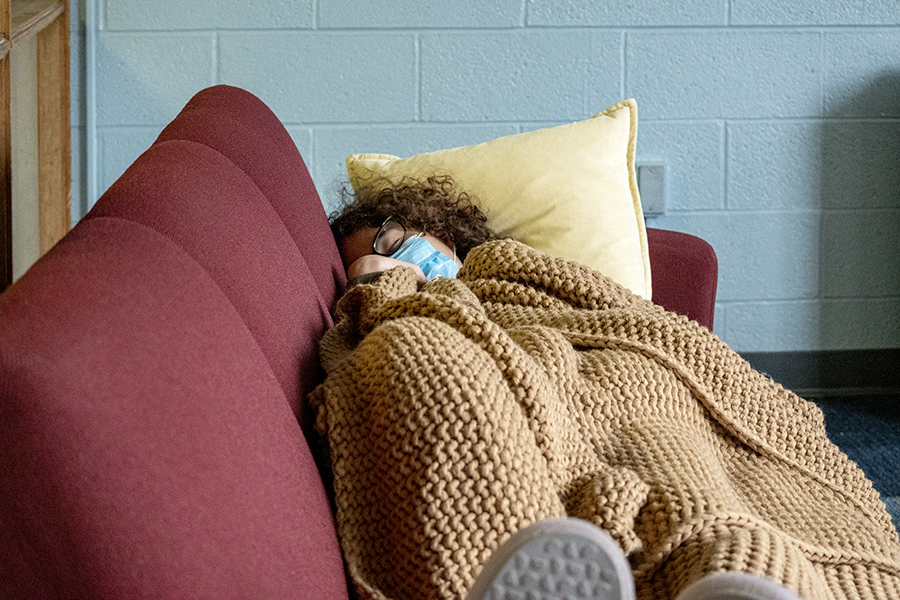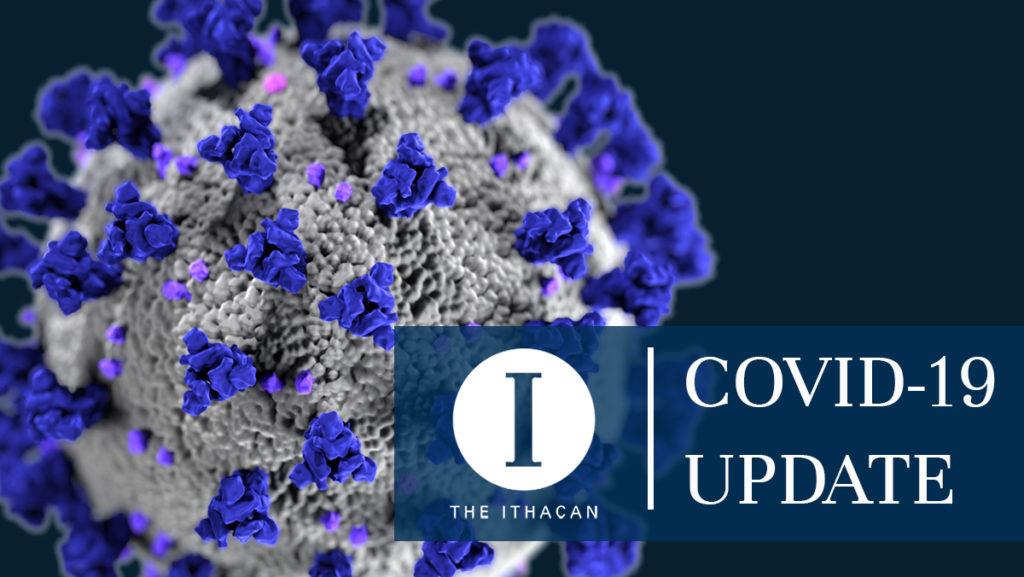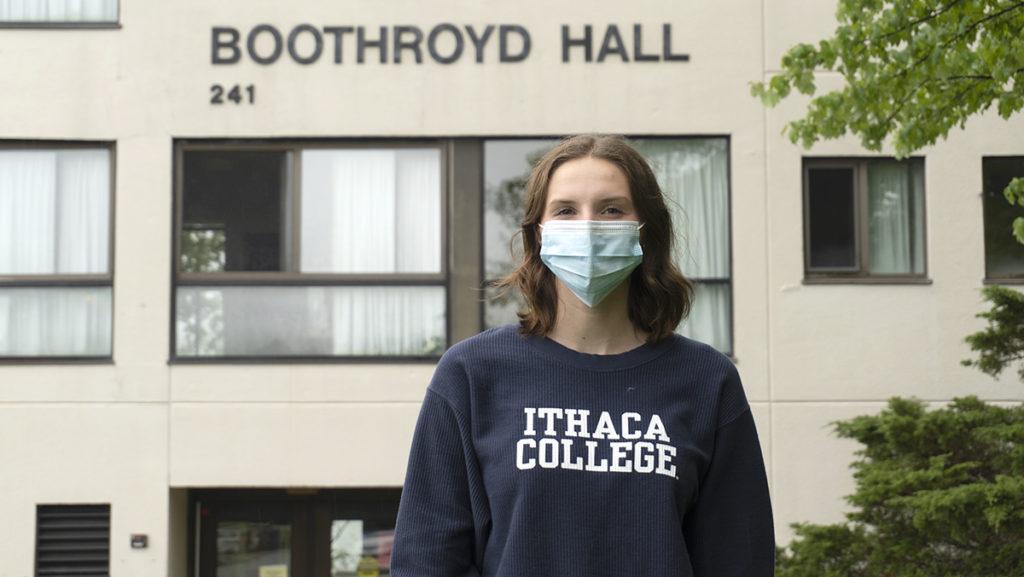As the season changes and the weather gets colder in Ithaca, some students have been feeling run down with a variety of symptoms as a result of the cold and flu season.
According to the Centers for Disease Control and Prevention (CDC), fall, winter and spring are known as cold and flu seasons, because people are staying inside more, and germs tend to spread easier indoors. The common cold, influenza and coronavirus have similar symptoms, according to the CDC. Congestion and runny nose is common for the common cold and can be a symptom of a COVID-19 infection especially in mild cases. According to the CDC, symptoms that people should look out for are difficulty breathing, confusion and dizziness.
Ithaca College currently has two off-campus active student COVID-19 cases and one active staff case.
Ellyn Sellers-Selin, physician and medical services director of the Center for Counseling, Health and Wellness, said one of the reasons students are getting sick is because of the increased amount of time everyone is spending indoors in close proximity.
“When we spend time with others and are sharing common spaces and close quarters, we potentially can get sick from each other,” Selin said. “Students should wear a mask and self-isolate. They should be tested for COVID-19.”
Selin said it can be challenging to tell the difference between COVID-19 and other illnesses as they share similar symptoms such as nasal congestion, sore throat, cough, fever or chills, fatigue, shortness of breath or body aches.
“The symptom of new loss of taste or smell is seen more commonly with COVID-19 so students experiencing this symptom should alert the staff at Hammond Health Center or Emerson Hall immediately and be tested,” Selin said.
If a student on campus is infected or was possibly exposed to COVID-19, they are expected to be quarantined in Emerson Hall for 10 days. Of the student population, 99% are fully vaccinated. The college provides students with dining, sanitation, laundry, medical, mental health and academic support services as needed. Students in isolation or quarantine must remain in the room provided and may not leave the room unless directed by college personnel. Students who stayed in Emerson have expressed frustrations over the conditions.
Sophomore Dylan Raisch checked himself into Emerson Hall because he thought that he had COVID-19 because of the symptoms like coughing and shortness of breath, but he did not have COVID-19.
“There were times where I would cough and not be able to breathe. When I was in Emerson Hall, it was eerie,” Raisch said. “The health center was helpful, but also I heard how people got a rapid test and it made me wonder why I was stuck in Emerson.”
The COVID-19 pandemic has forced the college to adapt to a new normal. For example, protocols were put into place to keep students and faculty safe. According to the college’s website, students should complete their daily health screening, clean and disinfect workspaces and wear masks indoors. Students were required to get vaccinated for COVID-19 and had the option of receiving Pfizer, Moderna or the Johnson & Johnson (J&J) vaccine.
The Pfizer-BioNTech vaccine was 95% effective at preventing laboratory-confirmed infection with the virus, according to the CDC. Moderna vaccine was 94.1% effective at preventing laboratory-confirmed COVID-19 infection in people who received two doses. The J&J vaccine was only 66.3% effective in clinical trials at preventing laboratory-confirmed COVID-19 infection in people who received the vaccine and had no evidence of being previously infected.
When Sophomore Riley Odessa felt sick she decided to go home because she did not want to be alone in Emerson Hall.
“Being alone that long would have led me to be super depressed and shut down,” Odessa said. “I had family in the house and even though they were in a separate part of the house in case anything were to happen I wasn’t worried.”
When sent to Emerson, students must quarantine or isolate in their own room separate from everyone else.
Odessa was concerned that if her symptoms worsened she would have been admitted to the hospital.
“Being away from home and being that sick and scared I was going to be in the hospital would not have been great by myself at school,” Odessa said.
Junior Annika Ueland said she was in her dorm room for two weeks and had issues receiving a rapid COVID-19 test from Hammond Health Center.
“I felt very tired and had dizziness along with a fever,” Ueland said. “At one point, it felt like I had sinus congestion. I did reach out to Hammond, but they weren’t very helpful. They wouldn’t provide a rapid test and said I couldn’t be seen on a Friday until the following Monday because it was the weekend.”
Sergio Pedro, assistant professor in the Department of World Languages, Literatures, and Cultures said he decided to have class over Zoom for a day after experiencing mild congestion even though he was certain he didn’t have COVID-19.
“Safety comes first,” Pedro said. “I know people who are at risk. The person who you sit next to might be immune compromised; you never know.”











